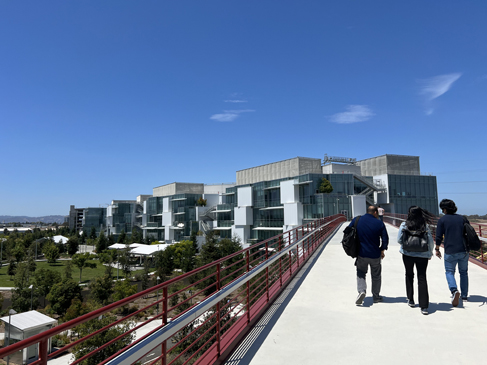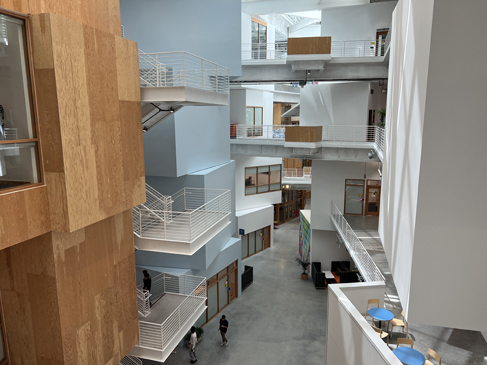12 September 2022
Social media often gets a bad rap, but US-based UniSA alumi Katphin Moo and his teams based in the US and London are supporting and building massive online communities seeking to do good, all via Facebook.
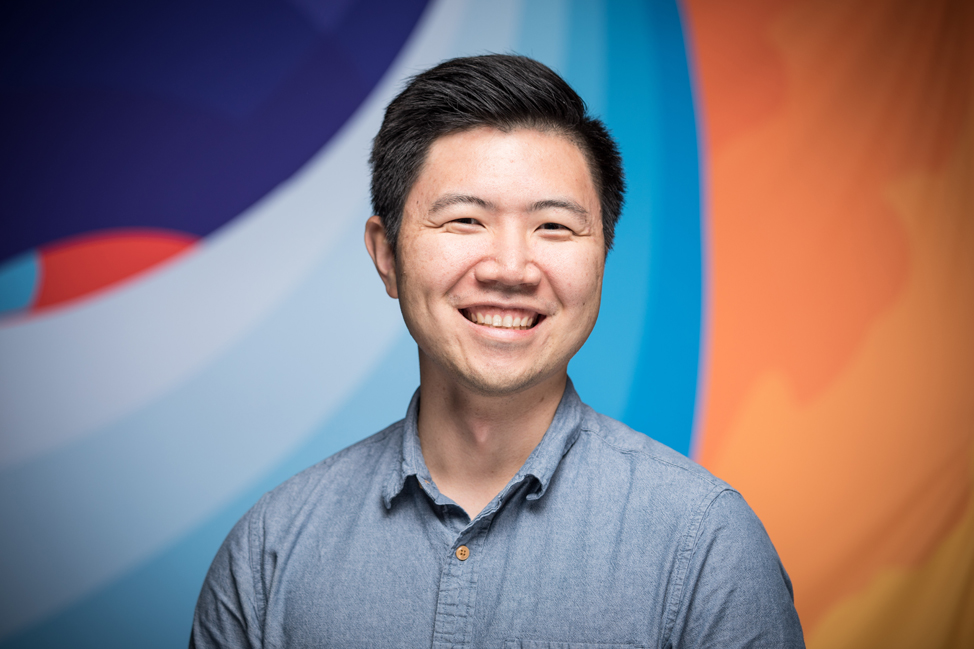
Katphin Moo
Director, Program Development and Community, Meta
Bachelor of Journalism (Editing and Publishing)
It may seem somewhat ironic that Katphin Moo, a self-confessed introvert, should choose communication as a career path, but Kat’s love of the written word and natural curiosity, nurtured at UniSA’s Magill campus, led to a “baptism of fire” in newspaper journalism. Fate and Cupid then intervened, and he is now based in Silicon Valley working in a role he loves.
Born in a Thai refugee camp to Chinese/Cambodian parents, Kat arrived in Australia aged two. After high school, Kat studied a Bachelor of Journalism majoring in editing and publishing and in 2009 secured a cadetship with The Advertiser. University taught him self-responsibility and assertiveness – and shorthand, a skill he uses to this day – but the deadlines and tough love of the newsroom were next level. “That was a great evolution for me – you have to run the whole gamut of being able to approach a stranger, quickly build a rapport and get the story,” Kat says.
Keen to put into the practice the theory taught at university, Kat jumped at the opportunity to move from frontline journalism to sub editing. He remains in awe of just what happens behind the scenes to produce a 100-page “book” (as it’s known in the newspaper industry) every day. Always keen to expand on his skills, he asked the others in the production area about their craft and gave it a go in his own time. Eventually one of his “trial” layouts went to print which resulted in “basically being told to stay in my lane”. Fortunately, his then manager recognised and fostered his interest though the proper channels and they were put to good use.
So, here was young man with his dream job and a home of his own … and then he went to his best friend’s wedding. A long-distance relationship with the bride’s cousin, American-born Michelle who was then working in China, ensued and led to her relocating to Adelaide and a proposal.
The couple decided to move to the United States to be closer to Michelle’s family and Kat, armed with his visa status, journalist’s tool kit and heartfelt letters of support (“sometimes I look back at them to remember where I came from”), was confident of continuing his newspaper career. As it turned out, his inquiries for work at the San Jose Mercury News were fruitless, as they were planning to relocate their operations to another city. This signalled to Kat it was time for a career change.
Submitting 40-odd applications for writing or editing jobs, Kat was invited to interview for just three – two of them just happened to be Facebook and Google both of which were on the cusp of huge growth. “The process was rigorous with back-to-back interviews and tests … I was so nervous,” says Kat. As luck would have it, Facebook offered him a job on the day of his interview with Google. After visiting both “campuses” Kat decided to go with job on offer in hand and has never regretted it. “I felt Facebook was a better fit for me. At that time the campus in Menlo Park, in the San Francisco Bay area, was Magill-esque.”
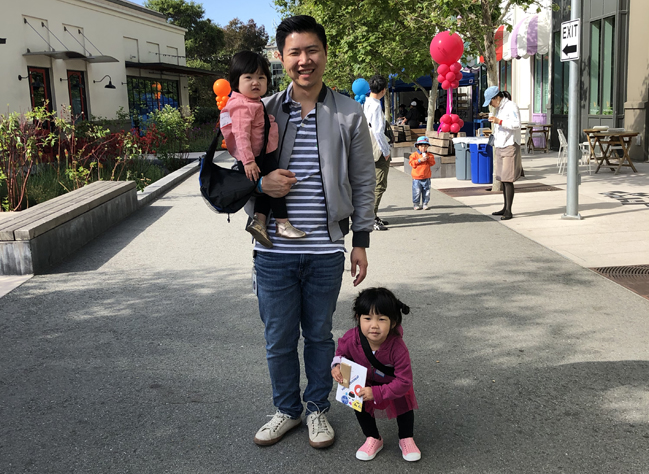
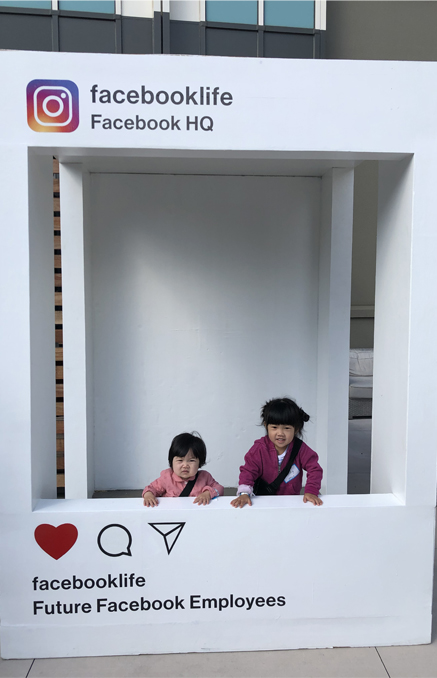
Kat’s first job was to write instructive online articles for the Help Centre such as How do I upload a photo? “The scale was mind-blowing. Writing for Adelaide Now, I’d be lucky if a story went national and maybe a couple of hundred thousand might read it. Here, I wrote about What does is mean if someone ‘pokes’ me? and it shows 10 million people read this thing!”
Ever curious, Kat tried to learn as much as he could about how things get done in Silicon Valley. Chatting with the data analysts, Kat learned to reinforce the impact of words by telling an “eloquent data story” to convince people they are making correct decisions.
Meta’s (formerly known as Facebook) philosophy of talent retention includes encouraging staff to apply for other positions within the company after 12 months in a role. In 2014 Kat moved into the fledgling advertising help centre which quickly grew from three to 28 staff. Here he discovered his love of mentoring and managing others. “It’s one of the greatest joys of my life. How do I motivate people and how do they work? How do I get the best out of them? You remember the people more than the projects.” It’s no surprise that Kat keeps in touch with previous staff to see how they’re doing. “There’s nothing like being able to touch careers.”
After five years in “ads”, Kat felt a desire to give back and moved into Facebook’s community sector. Every Facebook user is sure to be a member of one group or another and gradually these online communities are taking the place of those found at school, church or a sporting club. Unrestricted by time zones and borders, these groups can have millions of members, and create a full-time job for their admins. Appointed Director, Program Development and Community, Community and Impact Partnerships in March, Kat now manages a team whose role is to help admins and community leaders by teaching them best practices and connecting them with one another.
The team helps community leaders providing humanitarian aid, supporting victims of domestic violence, women’s education and mental health support by continuing their education on how to get the most out of the platform. The team also ensures feedback heard in the communities reaches the product teams. “People depend on our products now and we’re developing product they actually need – rather than what we think they need.”
And what works in the community sector can also be applied to customer loyalty. “It’s all about transparency and feedback. There’s an art to building a good community, regardless of whether you’re trying to build a brand or a social movement.”
Still the shy boy from Adelaide, Kat admits to a touch of imposter syndrome when in a room full of directors and VPs but knows there’s a reason his opinion is being sought. “That said, I’m in my element when I’m writing my thoughts. I find that very persuasive, and that started at university.”
Outside his role at Meta, Kat is on the board of Unite2030 an international not-for-profit helping changemakers work toward the United Nation’s 17 Sustainable Development Goals. “It’s my mission in life to give back; to learn how things work and how to fix them.”
